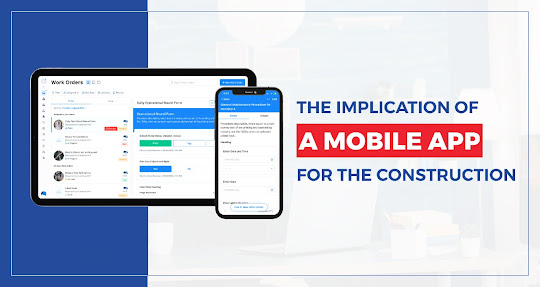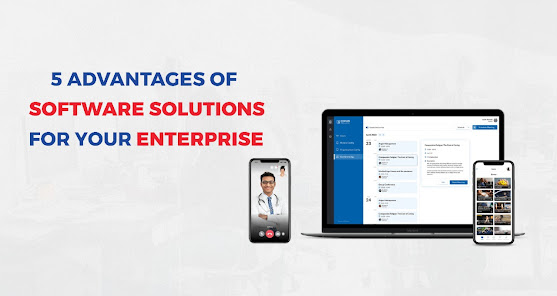The Top 8 Biggest Challenges That Every E-commerce App Faces
Gone are the days where people had to go to brick-and-mortar stores to buy anything. Thanks to the advancement in technology, now you can get anything you want from the internet.
In fact, more individuals today prefer to shop online from the comfort of their own homes rather than going to a mall. And especially because of Covid-19's mobility limitations, online purchasing and e-commerce have emerged as the ideal market for both customers and sellers.
Silver Lining to the Retail Sectors
The vast majority of shoppers start their shopping trip by conducting research online. Furthermore, 71% of buyers say that for a pleasant purchasing experience, an online marketplace that is swift and responsive is required..
In 2020, the total transaction value (TTV) in the e-commerce area was USD 3.7 million, and this value is predicted to increase to USD 4.5 million by 2023. Entrepreneurs must first solve the main difficulties that leading e-commerce organizations face in order to get a competitive edge in this crowded environment.
Here we list down the top 8 Biggest E-commerce App Challenges Faced:
1. Choosing the Right Technology
The first and most important step is to choose the technology and platform. With the advancement of technology, there are a plethora of alternatives for creating a powerful ecommerce app. A comprehensive web app or mobile app for your ecommerce store can be built on a variety of platforms.
For example, you must select whether to design a web app, a cross-platform app, or a native app based on your target audience and the OS they use. Whichever option you choose, ensure sure the app is compatible with all major devices and browsers. The right platform can be chosen from Android, iOS, and cross-platform technologies based on desired functionality, security, target audience, scalability, and other factors.
2. Speed and Usability of the App
Users may enjoy a hassle-free purchasing experience because of the application's usability, security, and speed. The better these factors are, the more traffic there will be. When numerous people are buying on the same platform at the same time, it's always tough to optimize these elements. Customers will be irritated by app crashes and glitches, resulting in a terrible user experience and a high bounce rate.
3. Inviting the Right Customers
By marketing the wrong products, many eCommerce applications fail to target the correct buyers. The products on the list must appeal to the correct customers and entice them to purchase them right immediately. Your choice of services or products can make or break your firm. Make sure to investigate market trends before releasing your ecommerce app. If you're confident in your niche, design your store around the unique selling proposition.
Also, traditional marketing approaches do not result in sales. Businesses, particularly those that deal directly with large crowds, must adapt to current marketing methods.
4. Cyber and Data Security
Since most brick-and-mortar shops don't have to worry about data storage and cybersecurity, e-commerce enterprises face a unique difficulty. Customers' names, contact information, transaction history, and payment methods must all be stored in order for your e-commerce business to service them properly. Consumers place their faith in your company to acquire, keep, and use their data responsibly.
Maintaining this trust requires cybersecurity safeguards for your e-commerce firm. Always be cautious and back up your data. After that, security plugins can be used to prevent your website from being hacked. There are various plugins available; choose the one that best suits your eCommerce website development services.
5. Omni-channel Customer Experience
It is due to the flexibility that many people shop on mobiles these days. However, there are various more options for shopping, such as a tablet, computer, or phone. Omnichannel marketing is the most effective technique of providing customers with a personalized purchasing experience.
The use of omnichannel marketing will assist eCommerce enterprises in attracting more clients. An app's omnichannel features assist consumers in having a seamless buying experience. However, such applications lack an omnichannel experience for eCommerce, which is a difficulty in and of itself.
6. Neglecting SEO
This can be one of the most difficult aspects of establishing an internet store. There's no denying that content is king when it comes to SEO. It helps you rank in the app store or play store. Improper pictures, duplicate page names, incorrect Meta tags, and content descriptions can all hurt your ecommerce website's SEO.
No matter how much money you spent on developing your eCommerce app, it would all be for nothing if you don't market it properly. Before releasing your app in the marketplace, make sure it is SEO-friendly.
7. Slow Checkout Options
Checkout or cart abandonment is one of the most vexing problems that ecommerce operators confront. Nobody wants to lose time in the checkout line. A customer completes the entire process of adding their desired products to their cart and then exits your website without making a purchase.
A one-click checkout can assist you in making your consumers happy and preventing cart abandonment. Allow clients to keep information and other details for a faster checkout process to make the process more user-friendly.
8. Payment Failures
This is one of the most difficult issues that developers confront while creating an app. Remember to create an eCommerce app that allows clients to pay using credit, debit, or net banking cards, as well as other digital wallets. It can be aggravating when digital payments fail.
Payments may be deducted from the customer's account due to a technical difficulty with the app or a fluctuating internet connection, but the same payment is not credited to the seller's account. Getting the money is a time-consuming process. It should be stated on your ecommerce app or website that refunds to customers' bank accounts may take 7-10 business days. Using the COD option can help in such instances.
Stand Out Unique in the Competition
Although e-commerce has such a high potential for success, more shops are getting involved, and the competition is heating up. As a result, no matter how difficult it may be, differentiating yourself from the competition is a must if you want to expand your online business.
Is a mobile app, however, truly necessary? 100% YES!
ORP Versatile Mobitech has been skyrocketing the growth of their customers for the past 9 years through innovation in strategy and cutting-edge technology. ORP Versatile Mobitech, as the best Android app development firm, will assist your company in developing native apps, allowing you to stay ahead of the competition at all times. The android engineers are fluent in all native programming languages such as C, HTML, Kotlin, Java, and others, having built and supported more than 50 apps to date. Contact us today to help you overcome the challenges that most of the ecommerce apps face.




E-commerce apps face a myriad of challenges that can impact their success, from ensuring a seamless user experience to managing secure payment processes. One of the biggest hurdles is maintaining app performance during high-traffic periods, which can lead to slow loading times and frustrated customers. Additionally, integrating effective marketing strategies to attract and retain users while dealing with fierce competition poses a significant challenge. Security concerns are also paramount, as protecting sensitive customer data is essential for building trust. To enhance the visibility of your e-commerce app and address these challenges, consider utilizing the Top Dofollow Social Bookmarking Sites List 2024 with High DA By promoting your app on these high-authority bookmarking sites, you can drive targeted traffic, improve your app’s credibility, and ultimately overcome the challenges that many e-commerce platforms face.
ReplyDelete